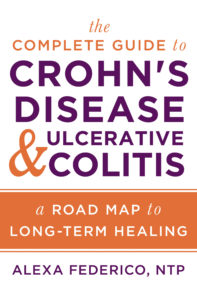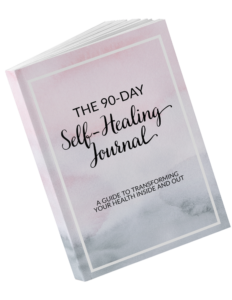Many people with a form of chronic illness experience guilt. This seems uncalled for, right? To feel guilty about any aspect of your health that cannot be controlled seems misplaced, even silly, in theory.
Yet, it appears to be more common than not. I have personally experienced it, and have been lucky enough to chat with some GIH members about their experiences. Guilt seems to be almost as prevalent in chronic and autoimmune illnesses as the pain itself.
Why Do People With a Chronic Illness Feel Guilt?
If you do not have a form of chronic illness, you may be perplexed right now. There are many different sources of this guilt, some of which I have listed below.
- Feeling as if you are a physical burden to those taking are of you. Chronic pain comes in a variety of forms, but in the end it can be debilitating. Those of us who need the help of caretakers can feel as if we are putting our family and friends out and draining their energy.
- Feeling as if you are a financial burden. Whether you are a young person and have parents that pay for all or some of your medical expenses, or you have a spouse and/or a family, the cost of having a chronic illness can be enormous. Many of us seek alternative therapies to help us heal, which are often not covered by insurance. This is exacerbated if the person with chronic illness is unable to work to cover these costs.
- Feeling guilt for cancelling plans. This is a big one. It’s normal to make plans days, weeks, even months in advance. But when you have a chronic illness, you really don’t know how you are going to be feeling that day, even if the plans are made only a few days beforehand! Those of us on the chronic illness end feel bad for letting our family or friends down, disrupting the plans, and not being able to socialize and catch-up. Often the pain or fatigue associated with chronic illness is not noticeable (hence “invisible illness”) and therefore the recipients do not understand or believe it.
- Going along with cancelling plans, some of us may not commit to plans in advance for this reason. For the people making this choice, again, it feels like you are letting your friends/family down or are “no fun.”
- Calling out of work. Just like feeling as though you let you friends down when cancelling plans, it can feel like you are letting your boss or co-workers down. This can also stir up fear, worry, anxiety, and stress, which go against the healing process.
- Guilt over food restrictions. This can manifest in two forms. First, if you are living at home and enjoying meals with a spouse or family, you may feel guilty over needing to make major overhauls in the shared meals. Sometimes family isn’t always receptive to change (especially children), and it can feel like you’re putting the complications of your illness on them. Second, going out to eat or going to a party can be tricky. The types of restaurants you can eat at can be extremely limited depending on your food restrictions. Guilt can manifest because you are always the one dictating where to eat. Likewise, when visiting someone’s house, a person may have to inquire what is being served (can be uncomfortable) and/or bring their own food (can also be uncomfortable and the person may feel guilty that they are appearing ungracious or food-snobby).
- Guilt over how we care for ourselves. This is more pronounced in those of us that are already taking charge of our health, versus those with the mindset that their disease is totally uncontrollable. When feeling unwell, it can feel like we aren’t doing enough or the right things. In reality, we may be doing all we can in the reign of our control. Other people who may think they are being helpful sometimes suggest what they think is the answer for us not being well, and that makes the person feel as if they aren’t trying hard enough.
- When any of the above scenarios are in play, guilt is often self-inflicted, which is hard enough. But when family or friends add to the guilt, it makes those feelings come alive and place a much heavier burden on the ill person. I am so blessed to have had only supportive friends and family. Sadly, I have talked to many people who experience just the opposite. Loved ones who can’t see the pain may question why you aren’t working, why you can’t keep plans, have no energy, and the list goes on. Not having people around who at least *try* to understand creates a huge roadblock for people to overcome these emotions.
These are just the most common forms of guilt I have experienced or came across. I am sure there are others.

How Can Family & Friends Be Supportive vs. Toxic?
If you are a spouse, relative, co-worker, or friend reading this, thank you. Living with a chronic illness is tough enough, but having people around who care makes it 100 times better.
To support your friend or family member from loving place, keep these in mind:
- Listen. Simply listening doesn’t seem like much but when you’re going through a health issue on your own, unloading your thoughts and feelings can be so freeing.
- Check in. Sending a quick text, email, or phone call just to ask how the person is doing and send healing vibes their way reminds them that they are not alone.
- Brainstorm things to do together. When someone is dealing with any chronic illness issue (whether it be diet restrictions, fatigue, digestive problems, skin issues, etc.), and is unable to join a social outing, the feeling of isolation and FOMO (fear of missing out) can set in deep. The last thing you want to do is for this person to go down a depressive road. Suggest some activities that you think might work for them and just ask what they would like to do.
- Send a wellness package. Once when I was in a flare up, a close friend came over with a few things she knew I would love and a beautiful hand-written card. Her thoughtfulness blew me away. It seemed like a simple thing, but the gifts she chose made it clear she really knew me! I felt loved and supported. You can find lots of ideas for wellness gifts in my Wellness & Self Care Gift Guide.
- Most importantly, reassure them that you understand if they cancel, have an off day, are experiencing symptoms and cannot chat, or anything else. They are likely feeling bad about these things, and knowing that you are not feeling affected by it takes a load of of their shoulders.
All in all, being a loving friend who doesn’t judge, but supports, listens and is there is the best way to help your loved one.
I Have a Chronic Illness- What Can I Do?
How does one with a chronic illness get past this guilt? It’s not easy, I will not lie. I still feel it occasionally. The longer I live with Crohn’s (and get older in general), the less I worry about what people think of me and my decisions.
So remember:
- You are the most important person in your life. All aspects of your health come first, be it mental, physical, emotional. You aren’t doing something to a friend (i.e. cancelling plans), you are doing it for yourself (self care needs to be your number 1 priority).
- Keep a journal. I personally keep a gratitude journal and list things I am grateful for. You can write in this daily or however often you feel like. It can be a recount of your day, your list health or life goals, and more. Seeing the great things, small or big in your life, reminds you of the abundance in your life despite a chronic illness.
- Realize that you contribute to your loved ones’ lives. Maybe you can’t go out clubbing with your friends. So what? You can offer them advice and support, share laughs, and enjoy activities that work for you. Maybe you can’t work full time and feel guilty that you aren’t helping your spouse. Yet, if you are the one cooking healthy meals, doing housework, driving the kids and helping with homework, those are some vital ways to support a family.
- Remember that your friends and family are around you because they want to be. Before you get caught up in, “I feel so bad for letting them down,” or “I hope they don’t think I’m lying,” or “I feel guilty that I can’t add to our income,” remember that everyone who is in your life makes the choice to be there. You are loved!

In Summary
Guilt is a common feeling when it comes to chronic illness. For our own health it’s important to thwart these feelings and thoughts. Refer back to these points. And when in doubt, be open and honest with your friends and family and let them know how you feel.
Often when a person hides their pain, others cannot tell just how hard it is. It’s okay to let those close to you know that you are hurting or feel a certain way.
Do you have any tips for those with chronic illness dealing with guilt or their friends/family? It would be so helpful for others to see your tips in the comments!







Hey, Great article!
I’am aware that the guilt ans shame is often unfounded. We don’t want to say no, but e need to. Just do remember that it’s OK to say no to events and family or friends get-together. It’s OK to need help. We cannot be all things to all people. Only God can do that.
Thank you so much. I deal with the guilt all the time. Ive had Lyme for 2 years and ive missed out on SO much !! When I’m having a bad flare up like i am now is when i feel it the most. Before Lyme i was a vibrant busy woman that liked to go have fun, work, clean my house, spend time with my husband and so on…. Now I’m just a shell of that person. I KNOW my husband family and friends are sick and tired of me being sick and tired. Good Lord I’m sick of being sick and tired. I’ve been in bed or on my couch most of the time for a month now. I haven’t been to work and have probably lost my job, but i cant and don’t even care at this point. I’m literally unable to do it right now. Any suggestions??? Thanks for listening… Lisa Hess
Hi Lisa,
I am terribly sorry you are going through this! The guilt is totally normal and something I still moderate for myself here and there. It is really difficult when a chronic illness changes your life. My recommendations would be to work with a naturopathic doctor or some kind of holist nutritionist. Diet, lifestyle, and supplements can all help. Lyme is complex and some practitioners specialize in it so I would definitely look into one who can help you. I wish you the absolute best in 2018!!
Alexa
This is amazing, thank you so much for sharing this, I’ve been facing this all week after my friends cooked me my first proper meal in two weeks.
Love a fellow spoonie x
Aw I am so glad to hear you can connect with this! I wish you healthy days ahead! xx
I think keeping a gratitude journal is one of the best things you can do! I feel guilt for a variety of reasons, many of which you listed, but my main one being that I feel like a burden on my parents who take care of me. However, they are my best friends and I have to remind myself we take care of each other! Really loved reading this post!
It’s so helpful Chelsea! And I totally feel the same about being a burden on parents. I live at home and I luckily I have been very healthy lately but some of the medical costs are so high! Wishing the best health to you, thank you so much for reading 🙂